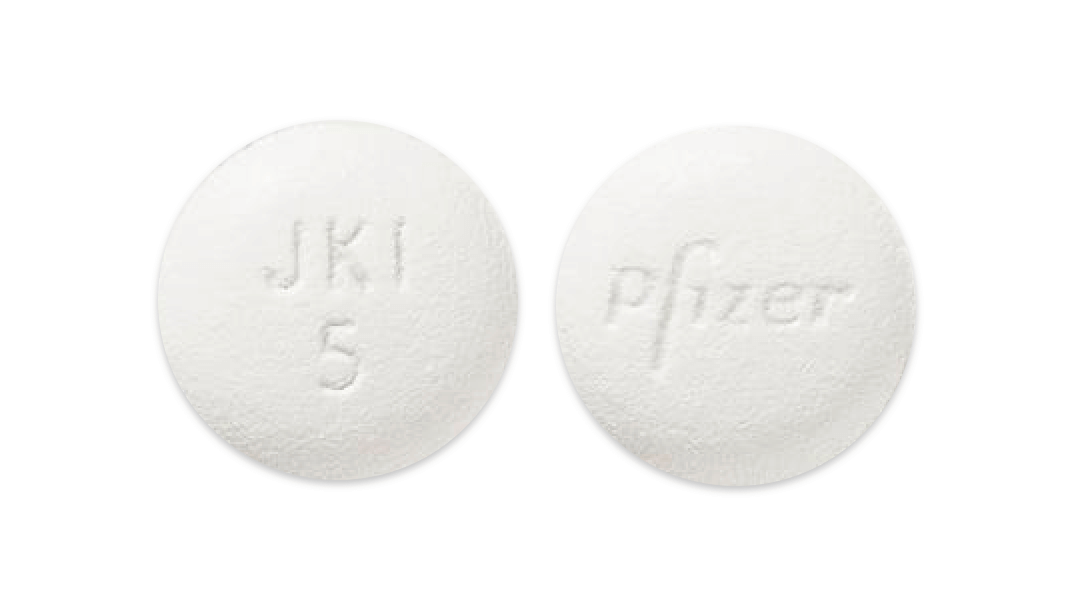FDA Warns of Heart Problems and Cancer With Arthritis Drug Xeljanz
Editors carefully fact-check all Drugwatch.com content for accuracy and quality.
Drugwatch.com has a stringent fact-checking process. It starts with our strict sourcing guidelines.
We only gather information from credible sources. This includes peer-reviewed medical journals, reputable media outlets, government reports, court records and interviews with qualified experts.

The arthritis and ulcerative colitis drug Xeljanz (tofacitinib) could potentially increase the risk of heart-related problems and cancer, according to a February 2021 U.S. Food and Drug Administration Drug Safety Communication.
“The U.S. Food and Drug Administration (FDA) is alerting the public that preliminary results from a safety clinical trial show an increased risk of serious heart-related problems and cancer with the arthritis and ulcerative colitis medicine Xeljanz, Xeljanz XR (tofacitinib) compared to another type of medicine called tumor necrosis factor (TNF) inhibitors,” the FDA said.
The warning affects thousands of patients who have taken Xeljanz since its release in 2012.
According to Pfizer’s Xeljanz website, the drug is the most prescribed in its class of JAK inhibitors. The FDA approved it to treat rheumatoid arthritis, psoriatic arthritis and ulcerative colitis.
The drug brought in $2.4 billion in 2020, according to Pfizer’s annual report.
The FDA ordered the clinical safety trial when it first approved Xeljanz to evaluate the risk of cancer, infections and serious heart-related problems in people with rheumatoid arthritis.
Initial trial results showed people with RA treated with the medication had a higher occurrence of cancer and heart-related events compared to those who took a TNF inhibitor — a class that includes Humira — the FDA said.
The regulatory agency is waiting for more trial results before taking action. Previous safety signals led to increased label warnings and restrictions on the medication’s use.
Xeljanz Gets Boxed Warning for Blood Clots, Death
These latest findings on heart problems and cancer aren’t the first red flags the FDA has found in ongoing safety trials for Xeljanz.
In February and July 2019, the FDA warned the public that interim data showed an increase in blood clots and death with higher dosages of 10 mg two times a day.
Based on that evidence, the agency required Pfizer to place a boxed warning on the drug’s prescribing information. The boxed warning lists adverse events including blood clots, lymphoma and serious infections leading to hospitalization or death.
The higher 10 mg dose isn’t approved for arthritis patients. FDA limited Xeljanz use for ulcerative colitis to patients who don’t respond to or cannot use other medicines.
Unlike the 2019 blood clot warnings, the February 2021 warning for cancer and heart problems applies to all doses and indications for Xeljanz.
Blood Clot, Death Warnings Lead to Lawsuits
Shortly after the FDA’s safety communication and updated warning label appeared on Xeljanz, plaintiff’s lawyers began accepting cases from patients who took the drug and suffered blood clots or death.
The litigation is in the initial stages, and Pfizer hasn’t reported on the number of lawsuits it faces in its 2020 annual report.
Xeljanz lawsuits claim that Pfizer knew of the risks but failed to warn the public and that Xeljanz is a defectively designed drug.
Pfizer faces other lawsuits linked to drugs such as Effexor, Lipitor, EpiPen, Taxotere and Zantac.